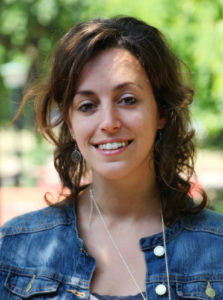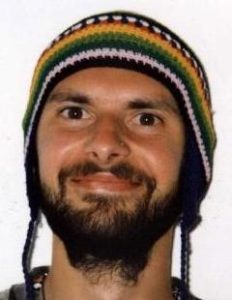Fifth School 2022
Science Communication School: |
10-13 October 2022, Montagnana, Italy. |
GeoScience Communication School: |
10-15 October 2022, Montagnana, Italy. |
Over the past decades communication and outreach has become a fundamental concern of state-of-the-art research communities.
The relationship between science and society has begun to change radically and communication has become a necessity.
Important decisions involving scientists’ research are no longer made by the scientific community but by politicians, private companies and by the media.
Moreover the decisions often involve the general public whose opinion influences the politicians and the media behavior.
For these and other reasons it is important to improve the dissemination of research and to convey the value of a scientific way of thinking even to those who have nothing to do with science.
Furthermore it is important to improve how scientists share results with the scientific community, in order to enhance the quality of the research and to facilitate collaborations. : it is necessary to learn how to make posters effective, how to communicate aims and methodologies in scientific papers and proposals, how to get projects funded.
Traditional scientific training, typically does not prepare scientists and engineers to be effective communicators outside of academia.
Attending the school students will learn how to effectively convey important research results to a public of both experts and laypeople.
Students will learn how to write an abstract, how to structure effectively a poster about their research, how to write a paper.
Also students will receive coaching from experienced researchers on proposal and report drafting, and on how to improve communication to policymakers, general public and school students.
Being involved in science communication activities will allow the students to gain communication technical skills that will be useful in their wider lives and will remind the students that science is an heritage that needs to be shared as a part of our culture.
The school is divided into 2 modules, the first 4 days will be dedicated to the science communication in general so it will be open to researchers of all fields, the last 2 days will be focused on Geoscience communication with specific laboratories with experts explaining how to give the best ideas about Earth sciences to different types of audiences.
The school has the aim of offering overview and training of scientific communication skills in all its forms and will treat communication not only with an “educative aim” but also with a “scientific aim”.
The lecturers will therefore not only present an overview of science communication from a theoretical point of view, but also will offer practical activities on abstract/paper writing and poster editing, on proposal and report drafting, and on how to improve communication to policymakers, general public and schools.
All the lectures will be accompanied by laboratories and students will experience concrete activities: for example each student will present a poster at the beginning of the school and posters will be corrected and improved at the end applying what learned during the school; at the end of the school students will try to provide accurate but concise information about their science to the general public recording a short movie (famelab-like) which will be published into our website to get feedbacks.
Registration deadline: 10 September 2022
Science Communication School (SCS), 10-13 October, Montagnana, ItalyRegistration fee is 100€ including excursion, coffee breaks and teaching material. Deadline 30th of June 2022
To register please follow this link: Registration to the (Geo)Science Communication School |
GeoScience Communication School (GCS), 10-15 October, Montagnana, ItalyRegistration fee is 150€ including excursion, coffee breaks and teaching material. Deadline 30st of June 2022
To register please follow this link: Registration to the (Geo)Science Communication School |
Organizing committee

Rita Nogherotto, PhD
The Abdus Salam International Centre of Theoretical Physics (ICTP)
UNESCO, Strada Costiera, 11, 34151, Trieste, Italy
phone: +39 040 2240 309

Riccardo Biondi, PhD
Università degli Studi di Padova, Dipartimento di Geoscienze,
Via Gradenigo 6, 35131, Padova
Lecturers
- Prof. Elena Bazanova, Foreign Languages Department and Language Training and Testing Center at Moscow Institute of Physics and Technology (MIPT), Moskow (Russia)
Elena M. Bazanova, Ph.D., associate professor, academic writing expert and a scientific editor. Dr. Bazanova is the author of about 40 publications, including 17 textbooks and academic study manuals on English language teaching. Currently, she is Head of Foreign Languages Department and directs the Language Training and Testing Center at Moscow Institute of Physics and Technology (MIPT) and the Academic Writing Office at the National University of Science and Technology MISIS. She is a member of several important writing associations. Dr. Bazanova has specialized in teaching English for Specific Academic Purposes, and she is the author of the COURSERA specialization “English for Research Publication Purposes” including four courses: Academic Literacy, Scholarly Communication, Grant Proposal, and Technical Writing.
- Prof. Sam Illingworth, Department of Learning & Teaching Enhancement at Edinburgh Napier University, Edinburgh (UK)
Sam Illingworth is an Associate Professor at Edinburgh Napier University, UK. He is a work-leading expert in using poetry to develop a dialogue between scientists and non-scientists. You can find out more about his work and research via his website www.samillingworth.com or on Twitter @samillingworth
- Dr. Gemma Musacchio, Istituto Nazionale di Geofisica e Vulcanologia (INGV), Milan (Italy)
Gemma Musacchio is a scientist at Istituto Nazionale di Geofisica e Vulcanologia (INGV, Italy) where she does research in the field of communication of seismic hazard and risk. She has a PhD in Earth Science (University of Milano, Italy) and a Master in Scientific Journalism and Institutional Communication of Science (University of Ferrara, Italy). She has been a research scientist at several institutions in Europe, USA and Canada. Her background research interests include the study of the structure, composition and evolution of the Earth Lithosphere. She has published several papers in international journals and books, and coordinated European projects devoted to risk communication; she is a jury member of science dissemination national prizes.
- Dr. Rita Nogherotto, The Abdus Salam International Centre of Theoretical Physics (ICTP), Trieste (Italy)
Rita Nogherotto is a researcher, graduated in physics with a PhD in clouds microphysics. She works on climate modeling and extreme atmospheric events representation. She is member of a COST Action, founder of the (Geo)Science Communication School and co-organizer of the Pint of Science event in Trieste. Actively involved in science dissemination in the schools, with a special focus on climate change and its impacts.
- Prof. Hans Peter Peters, Free University of Berlin, Berlin (Germany)
Hand Peter Peters is Professor of Science Journalism at the Free University of Berlin. His scientific interests are in the domain of Public Communication of Science and Technology (PCST) and Public Understanding of Science with an emphasis on empirical research and international comparisons. He is editor of the journal Public Understanding of Science. Most of his research has dealt with public perception, public attitudes and public communication about nuclear power, climate change, genetic engineering, biomedicine and neuroscience. A particular focus was on scientists as media sources and public communicators – and on their role as “public experts” in environmental and risk issues. Currently, he helps understanding the consequences of three trends for science communication: (1) increasing strategic orientation of scientific communicators and its possible repercussions on science, (2) rise of the “public engagement” paradigm with its challenge of the traditional boundary between science and the public, and (3) science communication in an Internet-based media system with alternative paths to the public sphere and new communicators, media, gatekeepers and selection criteria.
- Katherine Leitzell, Communications Manager, Working Group I at IPCC
Katherine Leitzell holds a Masters degree in Neuroscience from the University of Southern California. She started in 2008 as a science writer at the US National Snow and Ice Data Center (NSIDC) and has worked in climate science communication since then. She worked at the International Institute for Applied Systems Analysis in Austria, and as the Communications Director for the NOAA California Sea Grant program, based at Scripps Institution of Oceanography. She is now the Communications Manager for Working Group I of the IPCC and works for the preparation and management of the launch of the WGI Sixth Assessment report to the media and public, helping IPCC Authors to develop impactful messages to increase the accessibility and impact of the WGI assessment.
- Dr. Laura Roberts Artal, Development Studies Association, United Kingdom
- Dr. Chiara Saviane, Scuola Internazionale Superiore di Studi Avanzati (SISSA),Trieste (Italy)
Chiara Saviane is the project manager of the Master’s course in Science Communication “Franco Prattico” at SISSA (mcs.sissa.it). She is involved in different training activities in science communication at the national and international level as well as in the preparation and management of different European projects. In particular she has been in charge of the European project “BID – brains in dialogue” aimed at fostering interdisciplinary dialogue on the impact of new technologies in neuroscience through workshops and outreach events, website and press office activity. Chiara also coordinates the organization of the Brain Awareness Week in Trieste, a global event aimed at increasing public awareness of brain research. She has previously done several years of research in neuroscience in Italy and UK and has worked as Science Programme Officer at the Wellcome Trust in London.
- Daniele Tenze, Freelance Actor and Researcher